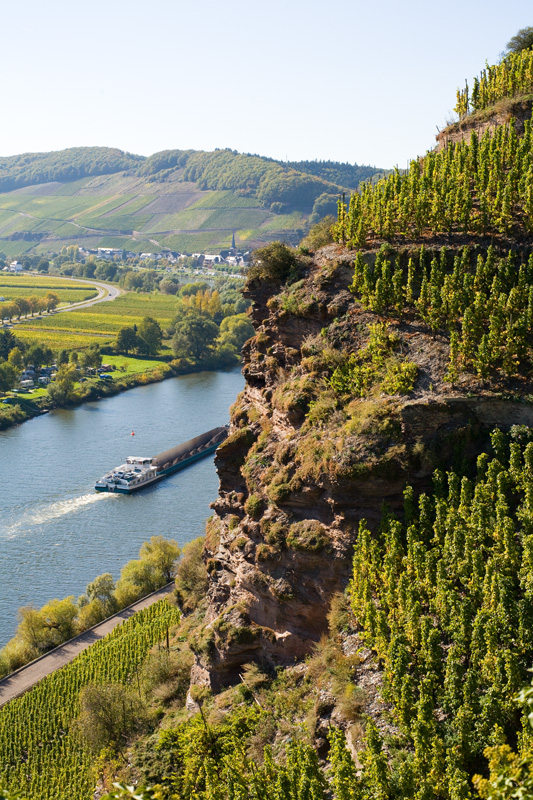
 The famous Erdener Treppchen Vineyard rests across the Mosel river from the small town of Erden, from which it takes the first part of its name. Treppchen means little staircase in German. Steep slopes are a common vineyard feature in the Mosel valley, as are stone steps and other engineering feats developed to make wine growing a little easier here. The Erden stairs were originally built in the Middle Ages, though the vineyard has been worked since at least the 3rd century.
The famous Erdener Treppchen Vineyard rests across the Mosel river from the small town of Erden, from which it takes the first part of its name. Treppchen means little staircase in German. Steep slopes are a common vineyard feature in the Mosel valley, as are stone steps and other engineering feats developed to make wine growing a little easier here. The Erden stairs were originally built in the Middle Ages, though the vineyard has been worked since at least the 3rd century.
The story behind the Erdener Treppchen name is fun and interesting, but the vineyard earned its fame by consistently producing some of the most delicious, memorable Rieslings in the world. The south-facing slopes are steep enough to suck up all the sunlight they need, both directly and indirectly from the river below. This allows the grapes to ripen slowly and perfectly over the long German growing season. The red slate soil, intermingled with iron and compact clay underneath stony, gravelly top soil, makes the wines distinctively full-bodied and strong, with minerality and punchy, clean fruit.
Alfred Graf is produced by Moselland, a grower’s cooperative famous for producing premium quality wines at competitive prices. What is a grower’s cooperative, exactly? A cooperative is a group of wine grape growers who share their resources to produce, bottle, and market wine. Making wine independently requires investment and time that is practically beyond the means of most farmers. Cooperatives play an essential role by providing growers with access to economy of scale, a vocal role in production, and a fair share of profits. This approach also provides a tremendous benefit to consumers. Well-run cooperatives like Moselland are a prime source for excellent wines at lower prices. Moselland was formed in 1968 when several small cooperatives merged. It is now based in the famous twin wine towns of Bernkastel-Kues, in the heart of the middle Mosel River Valley. Moselland produces wines from all over Germany in a range of styles, and Riesling is their specialty.
Press
2016: 89 WE